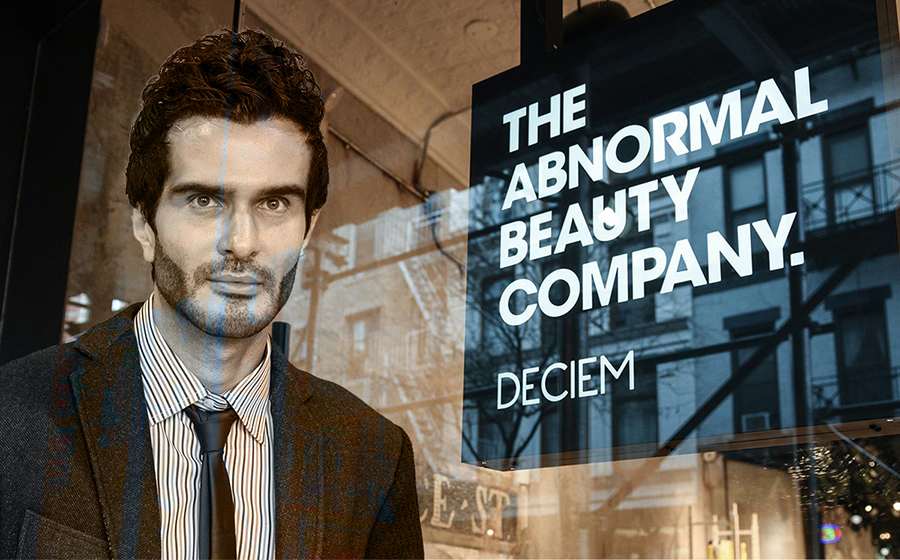Hear that? It\’s the sound of the other shoe dropping.
Several months ago, when I first wrote about Deciem for The Robin Report, a good chunk of my piece was devoted to just getting this mind-boggingly complex, Toronto-based company on our readers\’ radars. It\’s hard to keep up in beauty; there\’s so much going on, and so many new brands popping up on an almost hourly basis, that it\’s easy to lose track of a few here and there.
To recap, the main need-to-know about Deciem, because it\’s highly likely that the core structure of the company is the root cause of founder Brandon Truaxe\’s incendiary social media meltdowns, is that it was founded in 2013 and is already up to 15 brands. Of those, only one, an ingredients-centric skincare brand called The Ordinary, really blew up in terms of popularity.
Playing armchair psychoanalyst here, I\’ll just posit that maybe having only one massive hit among 15 brands isn\’t especially awesome for a fragile ego – especially when the world is watching. But we\’ll get back to the psychological excavation of Truaxe\’s tenuous mental state in a moment; for now, let\’s just do a wildly truncated, CliffsNotes-style catch-up for anyone who hasn\’t been following the soap opera that is Deciem unfold over the last year:
The Wildly Truncated Deciem Meltdown Timeline
- 2013: Deciem seemingly appears out of nowhere, launching brands – primarily in the skin and hair categories – at a blistering pace. Billing itself as \”The Abnormal Beauty Company,\” it\’s helmed by a deeply charismatic Canadian chap named Brandon Truaxe, a self-proclaimed \”computer geek\” appalled at the lack of transparency and stratospheric markups he encountered while interning at a cosmetics lab in New York City. The Abnormal Beauty Company will be different, he vows. It is.
- 2013 – 2017: Deciem cranks-out product after product, brand after brand, in a manic, highly undisciplined fashion. One brand, The Ordinary, garners huge buzz – and sales – with hyper-transparent, affordable offerings with names like \”100% Plant-Derived Squalane.\” In the millennial-led \”Authenticity Era,\” this resonates, big-time. The Ordinary gains traction.
- 2017: The Estée Lauder Cos. acquires a minority stake (28%) in Deciem. In the first sign that all may not end well, Truaxe promptly pens an appalling \”Letter From Brandon On Deciem\’s Partnership With The Estée Lauder Companies\” for the Deciem website. Sprawling and lawless, much like Deciem itself, the letter states that while \”The ELC team never questioned our margins, our pricing strategy, our future plans or our disruptiveness – they embraced all of it,\” his position at the helm of his company was virtually irrevocable. \”While I do sincerely believe that ELC has embraced everything about us, the facts are nonetheless very clear: they have a minority shareholding position; they do not control our decisions or dictate our direction; And I continue to remain CEO (and there is documentation in place to make it nearly impossible to fire me).\”
- 2017 – 2018: Truaxe loses his marbles, all but burns his company to the ground through a series of incoherent and inflammatory Instagram posts, as well as verbal abuse – and firing – of staff at the C-suite level. In his most recent Instagram post, he declares that \”almost everyone at Deciem has been involved in a major criminal activity,\” and alleges that such and people including Estée Lauder, Tom Ford – and oh-so-randomly – Brad Pitt are facing criminal prosecution. He closes retail stores, shuts down e-commerce and attempts to shutter Deciem outright.
- 2018: The EL Cos., the antithesis of manic, highly undisciplined, sprawling and lawless, claps back in Canadian court and receives an injunction; Truaxe is removed and his co-CEO Nicola Kilner, whom he booted earlier this year, would be re-instated in his place. As it turns out, \”nearly impossible\” isn\’t, in fact, totally impossible.
Way too Many Brands, Way too Much Buzz (and Pressure)
For most of us mere mortals, having a brand as successful as The Ordinary, which is clocking in at $300 in annual sales, would be cause for cracking open the champagne bottles in celebration, then doing everything conceivable to keep that momentum going. But clearly Truaxe was after something much, much bigger than a single rock star brand.
But talk about stress! Jesus. You launch a gigantic array of brands almost simultaneously, the buzz on one is massive, Lauder comes knocking for a stake, and, in order to show the world you aren\’t a one-trick pony, you have to keep all of those plates spinning in the air.
Is it any wonder Truaxe crashed to the Earth like a meteorite from the planet Krypton?
While I don\’t like to see a company like Lauder, which I admire very much, dragged through the mud by someone who they were really only making more rich and famous, I absolutely feel for Truaxe. Without question, his grasp on mental health is very, very shaky, and my heart goes out to anyone grappling with internal demons like that.
But let\’s face it: acquisitions, even minority stakes, are never a walk in the park. And some of the trickiest, thorniest – and most litigious – scenarios unfold when the original brand founder has the sheer gumption to stick around after the ink is dry.
Of course, that isn\’t true in every case. Bobbi Brown stayed attached to her namesake juggernaut for decades after Lauder bought it, and that arrangement paid off handsomely for everyone involved. More recently, the ongoing alliance between IT Cosmetics founder Jamie Kern Lima and L\’Oréal, which nabbed her red-hot brand in 2017 for nearly $1 billion, appears to be going swimmingly.
But then we have Deciem\’s deeply scary Brandon Truaxe. Where Truaxe is shoot-from-the-hip, Lauder, one of the tightest ships in the business, is think-it-through. Where Truaxe is loose cannon, Lauder is zip-it, baby. It\’s the collision of a guy with rough, raw edges and a corporation that prizes polish and discipline above all.
At first blush, it didn\’t seem like it would work. And guess what? It didn\’t.




